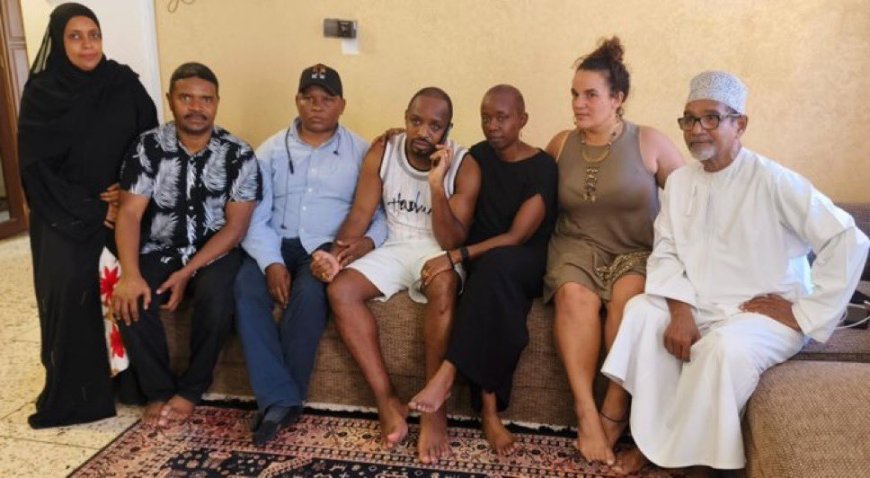Martha Karua, Ex-CJ Mutunga Sue Tanzania Govt
The applicants claim that on May 18–19, 2025, they were detained without explanation at Julius Nyerere International Airport in Dar es Salaam, had their passports taken, and were then deported back to Kenya.

Former Chief Justice Dr. Willy Mutunga, Senior Counsel Martha Karua, and four other activists have taken the Tanzanian government to the East African Court of Justice (EACJ), accusing it of illegal detention, denial of entry, and deportation.
The group—also made up of Gloria Kimani, Lynn Ngugi, Hussein Khalid, and Hanifa Adan—argues that their rights as East African citizens were violated when they were barred from entering Tanzania to observe the treason trial of opposition figure Tundu Lissu.
They are now seeking a public apology from the Tanzanian government, along with compensation for emotional distress, damage to their reputations, and expenses related to the incident.

A screengrab of PLP party leader Martha Karua (Right) and lawyers Lynn Ngugi and Gloria Kimani speaking from the Mwalimu Nyerere International Airport on Sunday, May 18, 2025. /MARTHA KARUA
The applicants claim that on May 18–19, 2025, they were detained without explanation at Julius Nyerere International Airport in Dar es Salaam, had their passports taken, and were then deported back to Kenya.
They say they were in Tanzania as part of an international observer mission to attend and monitor the trial of opposition leader Tundu Lissu, which was scheduled to start on May 19.
In their petition, they accuse the Tanzanian government of breaching multiple parts of the East African Community (EAC) Treaty—specifically those that uphold the rule of law, good governance, transparency, and the right to free movement across member states.
They also argue that being denied entry prevented meaningful civic participation and violated the principle of open justice, as they were blocked from attending a trial with significant regional implications.
The case, filed in collaboration with the East Africa Law Society (EALS) and the Pan African Lawyers Union, claims Tanzania’s actions go against Articles 6(d), 7(2), 76, 104, and 8(1)(c) of the EAC Treaty, as well as the EAC Common Market Protocol of 2009.
The group is also asking the court to order the removal of “refused entry” stamps from their passports and to issue an injunction preventing Tanzania from restricting East African citizens’ right to move freely.
The case will be transferred to the EAC headquarters in Arusha, where the court is expected to schedule a hearing in the coming weeks. The ruling could be a game-changer, potentially setting a strong precedent for how regional rights are enforced across the East African Community.
The incident strained the previously strong diplomatic ties between Kenya and Tanzania, which had long enjoyed a stable relationship. In the saga, the activists insisted they were in Tanzania strictly to observe the Lissu trial, but Tanzanian authorities accused them of interfering in internal affairs.
Tensions heightened when two activists, Kenya's Boniface Mwangi and Uganda's Agather Atuhire, who had successfully entered the country, were arrested and held for four days. They were eventually released at the border after sustained pressure and public outcry. Following their release, they accused the Tanzanian government of subjecting them to severe mistreatment and abuse.
The controversy grew so intense that President William Ruto was compelled to publicly apologise to both Tanzania and Kenyan youth, as the situation had sparked an online uproar and put diplomatic relations at risk.







